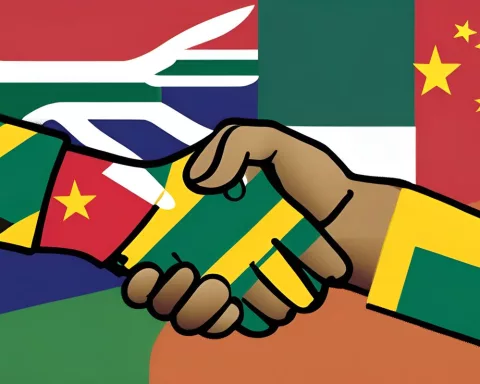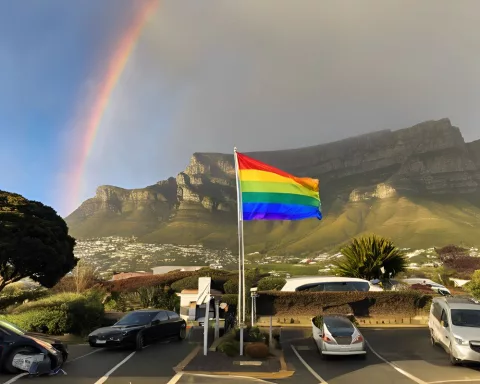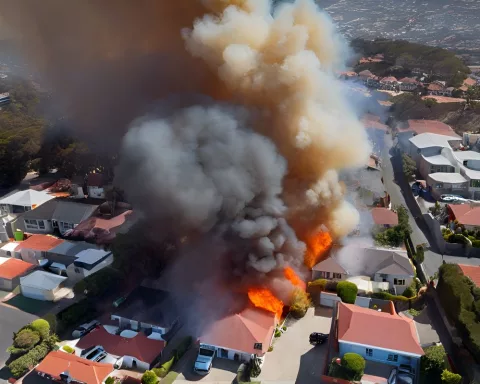SALGA, a South African Local Government Association, advocates for increased funding to enhance the financial viability of municipalities nationwide. While the allocation of R177 billion to local government seems hopeful, SALGA contends that it is far from sufficient, especially considering the substantial infrastructure backlogs municipalities are facing. The Standing Committee on Appropriations recommends forming public-private partnerships with local governments and rallying local businesses to attract local investment to improve financial wellbeing. SALGA endorses the deployment of smart meters to benefit municipalities and fight for the rights of the unheard.
SALGA advocates for increased local government financing to enhance the financial viability of municipalities nationwide. The allocation of R177 billion to local government is far from sufficient, according to SALGA, especially considering the wider issue of inadequate funding and the substantial infrastructure backlogs municipalities are grappling with. The Standing Committee on Appropriations proposed forming public-private partnerships with local governments and rallying local businesses to attract local investment as strategies for improving financial wellbeing. SALGA endorses the deployment of smart meters to benefit municipalities.
On a pivotal day in South African political history, the South African Local Government Association (SALGA) took the spotlight. They vigorously championed the need for sufficient funding to enhance the financial viability of municipalities nationwide. SALGA made this plea during a briefing to the Standing Committee on Appropriations. This formed part of the discussions on the 2024 Budget and the Division of Revenue under the Money Bills and Related Matters Act.
SALGA: A Voice for Local Governance
Representing the local government sector, SALGA has consistently advocated for the interests of municipalities. On this day, their representative Ms Lerato Phasha seized the opportunity to shed light on the numerous challenges faced by local municipalities. She painted a stark picture of rampant unemployment, pervasive poverty, and the resulting inability of communities to pay for services.
The allocation of R177 billion to local government might seem hopeful at first glance. However, SALGA contends that this amount is far from sufficient, especially considering the wider issue of inadequate funding. This concern is further exacerbated by the R484 million in conditional grants earmarked for the 2024/25 fiscal year. According to SALGA, this sum is woefully inadequate, given the substantial infrastructure backlogs municipalities are grappling with.
The Struggle for Adequate Funding
SALGA’s proposed solution is simple yet impactful: increase funding. They posit that a larger financial allocation to local government would not only deal with the infrastructure backlog but would also provide a safety net against the harsh realities of widespread unemployment and poverty.
The Standing Committee on Appropriations, however, recommended an alternative approach. They proposed forming public-private partnerships with local governments, a tactic that could funnel revenue from provincially operating companies back into the regions they operate. The committee opines that this strategy could stimulate local investment and development, thus improving the financial wellbeing of municipalities.
Furthermore, the committee suggested that local governments should not rely solely on national government funding. They put forth a plan designed to reinvigorate and rally local businesses to attract local investment. They believe that by doing so, municipalities can fortify their revenue streams and thereby improve the quality of services they deliver to communities.
Embracing Technology and Strengthening Partnerships
SALGA also endorsed the deployment of smart meters, a R2 billion initiative aimed at benefiting their members in local government. However, they hope that all member municipalities will reap the benefits of this initiative, with no restrictions imposed on defaulting municipalities that fall under the Eskom debt relief package.
SALGA emphasizes that municipalities should not bear the sole responsibility for the rollout. They argue for comprehensive support until municipalities can independently manage the installation.
The meeting’s narrative highlights the financial obstacles facing South African municipalities and the importance of strategies and partnerships that mobilize local investment while promoting a culture of self-reliance among local government spheres.
Amid this financial struggle, the Bill of Rights offers a glimmer of hope, affirming the right to assemble, demonstrate, picket, and present petitions, as long as it’s done peacefully and unarmed. This right continues to amplify the voices of the unheard, and it’s in this spirit of advocacy and resilience that SALGA continues to fight for local municipalities.
Moreover, the story mentions Ms Dikeledi Rosemary Direko, a Member of the African National Congress on the provincial list for Free State. She serves on the Portfolio Committee on Cooperative Governance and Traditional Affairs, underlining the interconnectedness of national and local governance.
In summary, SALGA’s call for sufficient funding highlights the indispensable need for a symbiotic relationship between the national government, local government, and the private sector. This relationship is paramount to achieving the ultimate goal of a sustainable and financially robust South African local government sector.
What is SALGA, and what do they advocate for?
SALGA is the South African Local Government Association, representing the local government sector. They advocate for increased funding to enhance the financial viability of municipalities nationwide.
Why is SALGA concerned about the R177 billion allocated to local government?
SALGA contends that the allocated R177 billion is far from sufficient, especially considering the wider issue of inadequate funding and the substantial infrastructure backlogs municipalities are grappling with.
What strategies did the Standing Committee on Appropriations propose for improving financial wellbeing?
The Standing Committee on Appropriations recommended forming public-private partnerships with local governments and rallying local businesses to attract local investment as strategies for improving financial wellbeing.
What is SALGA’s stance on the deployment of smart meters?
SALGA endorses the deployment of smart meters, a R2 billion initiative aimed at benefiting their members in local government. However, they hope that all member municipalities will reap the benefits of this initiative, with no restrictions imposed on defaulting municipalities that fall under the Eskom debt relief package.
What is the Bill of Rights, and how does it relate to SALGA’s advocacy?
The Bill of Rights offers a glimmer of hope, affirming the right to assemble, demonstrate, picket, and present petitions, as long as it’s done peacefully and unarmed. This right continues to amplify the voices of the unheard, and it’s in this spirit of advocacy and resilience that SALGA continues to fight for local municipalities.
Why is the relationship between the national government, local government, and the private sector important to SALGA?
The relationship between the national government, local government, and the private sector is paramount to achieving the ultimate goal of a sustainable and financially robust South African local government sector.












